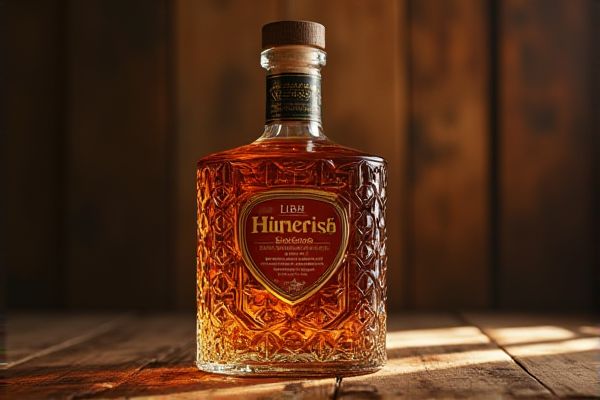
India's liquor market features prominent brands like Royal Challenge and Officer's Choice, known for their whisky offerings. Other notable entities include McDowell's No. 1, famous for its blended whiskies, and Radico Khaitan's brands. Indian-made foreign liquor (IMFL) has gained popularity among consumers, contributing to the country's vibrant nightlife. You can explore regional variations, with each state often having unique preferences for liquor styles and branding.
Brands to consider
Kingfisher
Kingfisher, a renowned Indian liquor brand, is known for its signature beers, particularly Kingfisher Premium and Kingfisher Strong. With a legacy dating back to the 1970s, it has become synonymous with Indian celebrations and social gatherings. The brand offers a diverse range of beverages that cater to various tastes, making it a popular choice among consumers. Kingfisher's strong presence in the Indian market, coupled with its international distribution, ensures that you can enjoy its offerings both locally and abroad. With consistent quality and a vibrant identity, Kingfisher represents the spirit of India in the liquor industry.
Old Monk
Old Monk, a renowned Indian rum brand, offers a unique blend of rich flavors and a long aging process, resulting in a smooth, aromatic profile. Established in 1954, it has gained immense popularity among consumers and bartenders alike, often noted for its distinct vanilla and caramel notes. The brand has a loyal following, with various expressions catering to different preferences. Old Monk is widely available across India, making it a convenient choice for occasions and celebrations.
Royal Stag
Royal Stag, a prominent Indian whiskey brand, is known for its smooth blend of grain and malt, appealing to many consumers. The brand originated in 1995 and has since gained a significant market share in India's competitive liquor industry. Royal Stag is strategically marketed as a premium choice for young adults seeking quality and affordability. Its unique flavor profile and strong association with celebrations make it a popular selection at social gatherings across the country. Many consumers appreciate that Royal Stag is produced by Pernod Ricard, a reputable name in the global spirits market.
McDowell's No.1
McDowell's No.1 is a prominent liquor brand in India, known for its diverse range of offerings, including whiskey and rum. The brand is a product of United Spirits, which has a strong presence in the Indian alcohol market. Its whiskeys, like McDowell's No.1 Reserve, are crafted using high-quality ingredients, appealing to various consumer preferences. The brand's initiatives in social responsibility and promoting responsible drinking further contribute to its reputation in the industry. Choosing McDowell's No.1 allows you to engage with a legacy that reflects both tradition and modern brewing techniques.
Amrut Distilleries
Amrut Distilleries, established in 1948, is renowned for its Indian-made whisky, particularly single malt varieties. The brand has garnered international acclaim, receiving accolades for its distinctive flavor profiles that reflect Indian heritage. Utilizing traditional distillation methods combined with high-quality ingredients, Amrut produces spirits that appeal to both connoisseurs and casual drinkers. Your exploration of Indian liquor brands will reveal how Amrut's innovative approach and commitment to quality have positioned it as a significant player in the global spirits market.
Market Leadership
Market leadership for liquor brands in India is characterized by strong sales figures and brand recognition. Companies like United Spirits dominate the sector, leveraging a diverse portfolio of products including whiskey and vodka. Consumer preferences shift towards premium brands, thus influencing industry trends and marketing strategies. Your understanding of local regulations and cultural nuances can enhance brand positioning in this competitive landscape.
Heritage and Legacy
Heritage and legacy play a significant role in defining the identity of liquor brands in India, emphasizing tradition and craftsmanship. Many brands, like Amrut Distilleries, underline their rich history and commitment to quality, drawing from age-old distillation techniques. Consumers often seek brands that reflect cultural heritage, influencing their purchasing decisions. The narrative surrounding a brand's origins can enhance loyalty and appreciation within the vibrant Indian market. Understanding this connection can shape your choices in a diverse and competitive landscape.
Product Variety
Product variety in the Indian liquor market includes a broad range of options, catering to diverse consumer preferences. Brands like Johnnie Walker offer a selection of blended Scotch whiskies, while local spirits such as Indian rum and various regional whiskeys are gaining popularity. Craft beers and artisanal gins have also emerged, reflecting innovative trends in drink preferences. Your experience with these offerings can enhance your understanding of the evolving landscape of India's liquor industry.
Regional Popularity
Regional popularity of liquor brands in India varies significantly, influenced by cultural preferences and local traditions. Brands like Kingfisher and Royal Challenge dominate in various states, while international labels such as Johnnie Walker and Absolut show strong demand in metropolitan areas. In Tamil Nadu, local spirits like arrack are well-regarded, reflecting regional taste. Your choice of liquor might depend on the proximity to these popular brands and the drinking habits prevalent in your area.
Innovations and Collaborations
Innovations in the liquor industry in India include the rise of craft breweries and the introduction of premium spirits, catering to evolving consumer preferences. Collaborations between brands like Sula Vineyards and local farmers emphasize sustainable practices while enhancing product quality. Your interest in unique flavors may lead you to explore the fusion of traditional Indian ingredients with modern distillation techniques in brands such as Paul John Whisky. The growing trend of experiential marketing invites consumers to engage directly with production processes, fostering a deeper connection with the brand.
 indiabrand.org
indiabrand.org